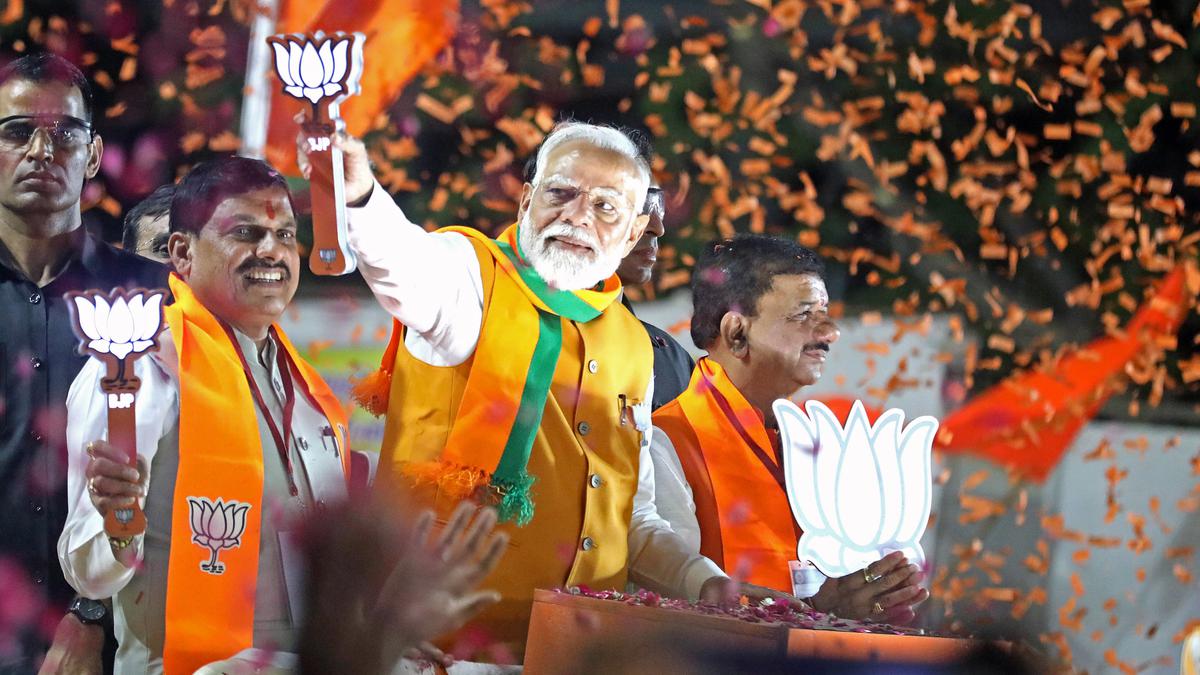
Inheritance tax in India | History, abolishment and revival attempts
The Hindu
A debate over inheritance tax in India was sparked by Sam Pitroda's remarks advocating for a US-style tax policy. Here’s a look at the history, abolishment and revival attempts for inheritance tax in India.
A debate has arisen in India over ‘Inheritance tax’ following Indian Overseas Congress chairman Sam Pitroda’s remarks on April 24 advocating for a US-style tax policy for inherited family wealth. Responding to this, Prime Minister Narendra Modi alleged alleged that Congress would impose such a tax on inherited wealth if voted to power.
Mr. Pitroda’s remarks were themselves a response to Mr. Modi’s allegations that the Congress was planning to redistribute citizens’ wealth among Muslims. In public meetings in Rajasthan’s Jalore and Banswara constituencies, Mr. Modi claimed that the Congress would conduct a survey to find out the property of individuals, Mangalsutra (gold) owned by women, silver owned by tribals, and land and cash of government employees and then redistribute it “among those who have a large number of children… and among the intruders” – alluding to the Muslim community.
Criticising the PM’s remarks, Mr. Pitroda stated that Congress party would frame a policy through which the wealth distribution would be better. Citing the inheritance tax imposed by some states in the US, Mr. Pitroda claimed: “Probably 45% of a US citizen’s wealth can be transferred to his children, 55% is grabbed by the government. That’s an interesting law.”
His remarks were vehemently denied by the Congress, with general secretary Jairam Ramesh clarifying, “I would like to categorically state that Congress has no plan on the inheritance tax. (Sam) Pitroda is a very distinguished professional and has expressed his views in the American context, which has no relevance for us. He does not speak on behalf of the Congress.” Later, Mr. Pitroda himself clarified that he only cited an example so that the issue can be debated. “I mentioned US inheritance tax in the US only as an example in my normal conversation on TV. Can I not mention facts ? I said these are the kind of issues people will have to discuss and debate. This has nothing to do with policy of any party including Congress,“ Mr. Pitroda posted on X, formerly Twitter.
In fact, it was former Prime Minister Rajiv Gandhi who abolished Estate Duty in 1985, Mr. Ramesh said, alleging that it is the Modi government that has wanted to impose such a tax, citing various instances from 2014, 2017 and 2018 when then-Finance Minister Arun Jaitley talked about it.
In 1953, India’s Parliament had passed the Estate Duty ‘Death Tax’ Act, which was later abolished in 1985 by the Rajiv Gandhi government. As per the Act, tax/duty was imposed on the principal value of movable and immovable property, including agricultural land, passed on to any person after the death of the owner of such property. The Act was applicable only if the property-owning person died as an adult (i.e. completed 18 years of age). Furthermore, Estate duty was applicable only on inherited properties with a value above the exclusion limit set by the Act, and the tax rate was calculated as per the market value at the time of death.
The properties on which this duty was applied included immovable and movable property owned by the deceased in India and outside, which were passed on to a successor – if the person died when domiciled in India. If not, estate duty was levied only on immovable property in India and all movable properties; immovable properties outside India were not taxed. The Act was amended in 1960 to exclude properties in Odisha, West Bengal, and Jammu & Kashmir, and further in 1968, 1982, and 1984 to include amendments made by other Finance laws.













